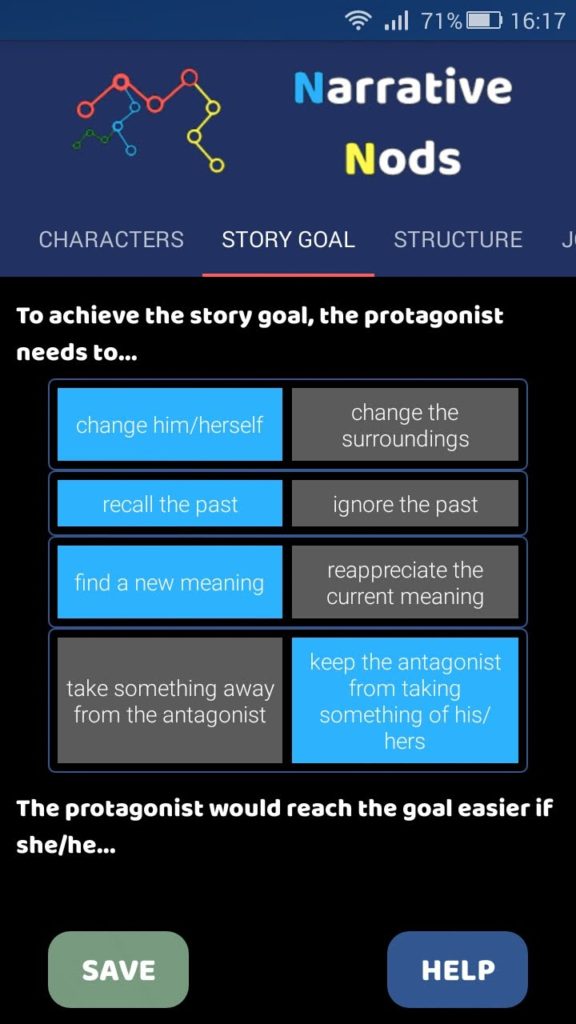Note: for an updated, much improved, and platform-independent version, check Narrative Nods v2!
Please note that none of my Android apps is any longer maintained – and they’re not even available on Google Play anymore – for reasons you can read about here. If you still have any of the Home for Fiction Android apps installed on your phone, you’re advised to uninstall them. The post below should be seen purely as a snapshot of history.
After GhostWriter, I’ve come back with another app. Narrative Nods is a free writing app for Android, which helps authors with narrative development. It works so that the writer supplies the app with information about characters, structure, narrative decisions, etc. and then it calculates the possible divergence points (“nods”) and offers a report with problem areas and other tips.

Narrative Nods: a Plot Development Tool for Fiction Authors
Much of what you have read about in my fiction writing tips has found its way into Narrative Nods. In other words, all my writing experience and academic background has helped me formulate a narrative theory that should, hopefully, be of use to you. Narrative Nods assesses character dynamics, story goal and narrative journeys, and calculates whether the narrative has led to a logical conclusion. In more detail, it calculates which of the four main narrative endings your novel belongs to.
Each tab contains a very detailed Help page, with instructions as well as information on theory. Even if you don’t know anything about narrative theory, you can still use the app without problems.
(more…)
